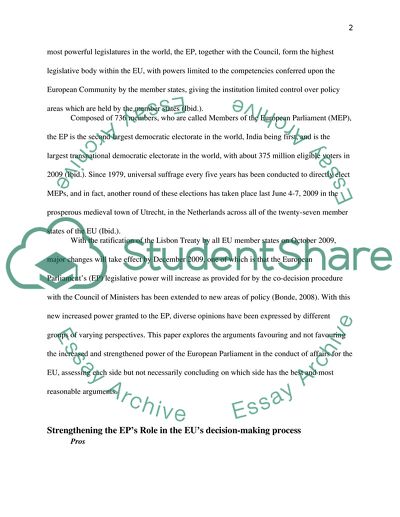Cite this document
(The European Parliaments Role in the EUs Decision-Making Process Article, n.d.)
The European Parliaments Role in the EUs Decision-Making Process Article. Retrieved from https://studentshare.org/politics/1730314-assess-the-arguments-for-and-against-strengthening-the-role-of-the-european-parliament-in-the-eus-decision-making-process
The European Parliaments Role in the EUs Decision-Making Process Article. Retrieved from https://studentshare.org/politics/1730314-assess-the-arguments-for-and-against-strengthening-the-role-of-the-european-parliament-in-the-eus-decision-making-process
(The European Parliaments Role in the EUs Decision-Making Process Article)
The European Parliaments Role in the EUs Decision-Making Process Article. https://studentshare.org/politics/1730314-assess-the-arguments-for-and-against-strengthening-the-role-of-the-european-parliament-in-the-eus-decision-making-process.
The European Parliaments Role in the EUs Decision-Making Process Article. https://studentshare.org/politics/1730314-assess-the-arguments-for-and-against-strengthening-the-role-of-the-european-parliament-in-the-eus-decision-making-process.
“The European Parliaments Role in the EUs Decision-Making Process Article”, n.d. https://studentshare.org/politics/1730314-assess-the-arguments-for-and-against-strengthening-the-role-of-the-european-parliament-in-the-eus-decision-making-process.


